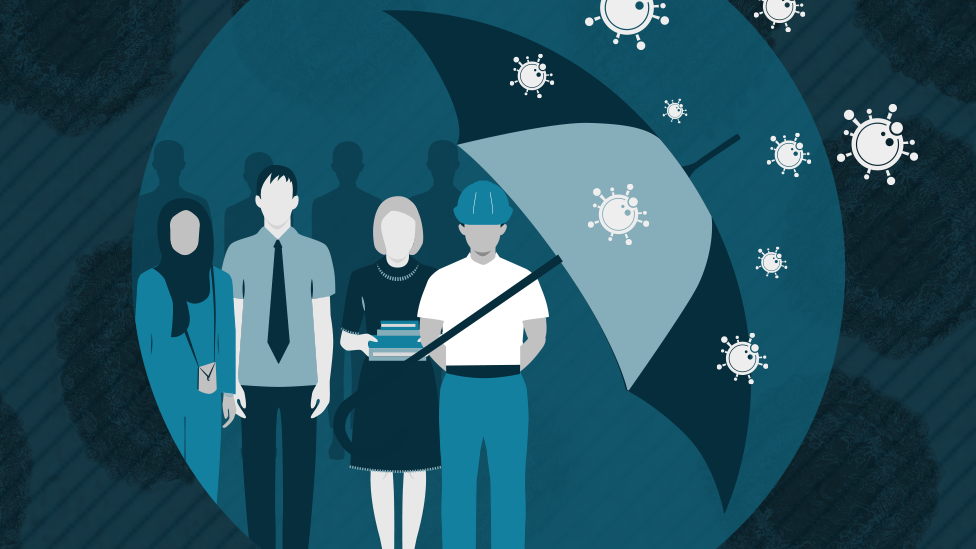Coronavirus: 'Why I hate working from home'
- Published
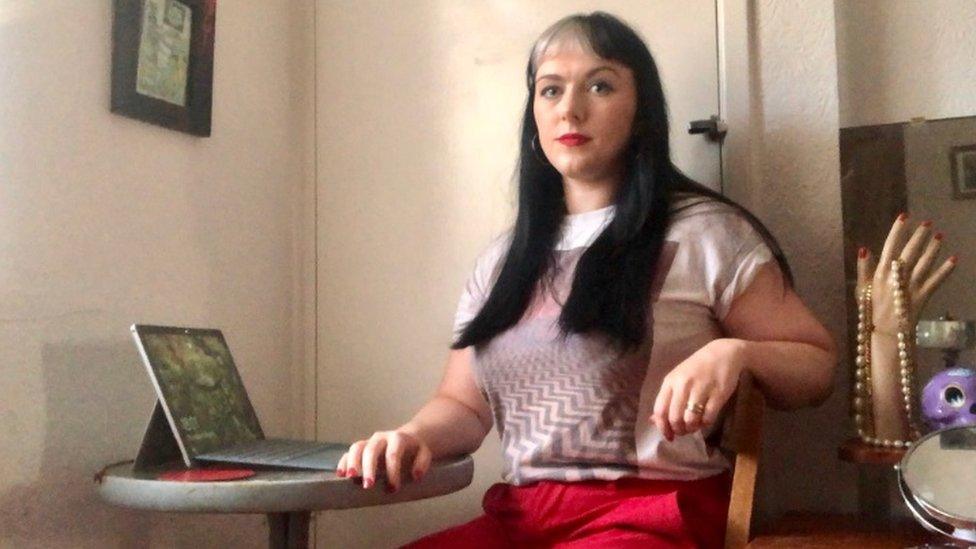
Tara Hudson says her back is now "in absolute agony"
It was fun for a week or two - a welcome change from the stresses and strains of the daily commute. But almost six months have now passed since many of us began working from home, and for some, it feels like it will never end.
Four people explain why they're finding home-working unbearable.

Tara Hudson hates working from home.
"At first it was fun because we were all in this together, we have got to do it to keep everyone safe," says the local council worker.
But she says the lack of space and proper equipment in the one-bedroom East London flat she shares with her husband makes it unbearable.
After five months of working from home, she says her back was "in absolute agony" from sitting hunched over her laptop without a proper desk.
Both she and her husband work from home. They only have one fold-out table in the living room and have to alternate who gets to work on the table. It's often "whoever gets it first".
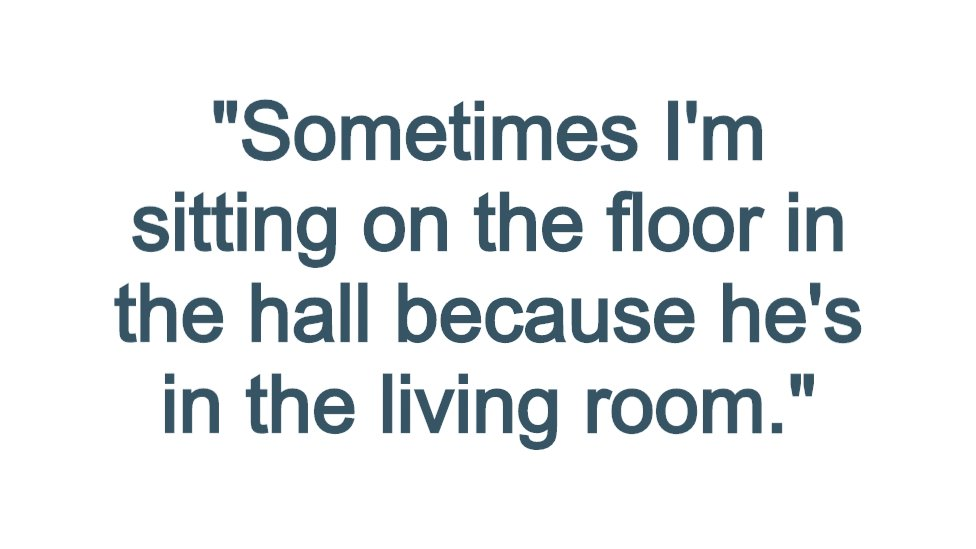
"We did try and bring in the garden table, but it's not really big enough," she says. "We both have jobs where we need to speak about confidential information. Sometimes I'm sitting on the floor in the hall because he's in the living room."
She often end up sitting on her bed. "There will be a whole generation of people who are working on their bed who will have spinal problems because of coronavirus," she says.
Although both her and her husband's employers have offered them home equipment, Tara says there's nowhere to put it. She says: "It's depressing - work, sleep and play in all in one room."
Tara was allowed to go back to the office for the first time earlier this month, after mentioning how hard she was finding home-working.
"It was so nice to have an office chair. You know correctly having your feet, having two monitors. I was so much more productive."

Lily O'Hagan has had enough.
The 26-year-old works for the claims department for a car insurance company in Cardiff and lives in a house-share with four men. Three of them are also working from home.
"My room is right next to the front door, so it's almost my unsaid duty to answer it when we get deliveries," she says. It has begun to get frustrating and the house has got messier.
Initially they struggled with the WiFi, as everyone tried to use it at once. "We had to get the landlord to get business broadband set up to make the WiFi faster as it was awful."
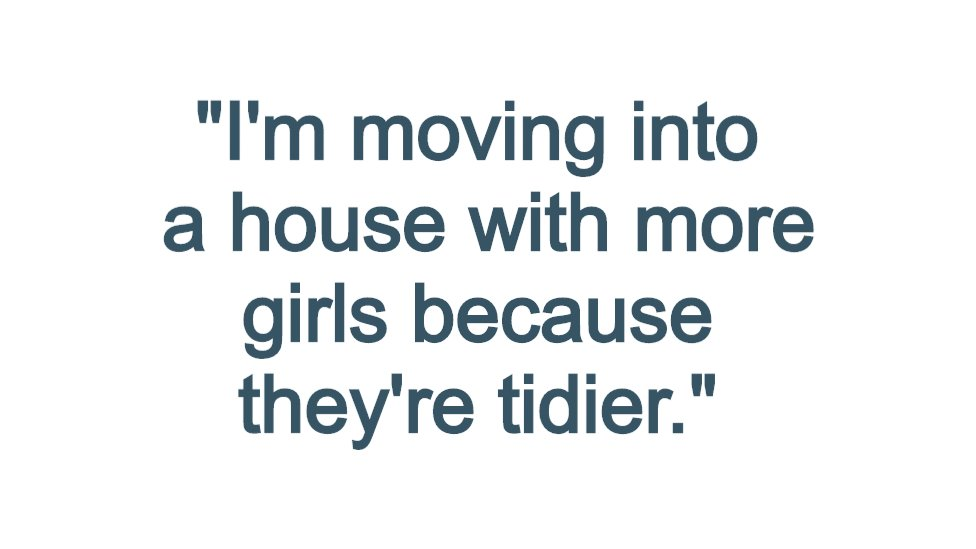
Lily works with customer's confidential information so she feels she can't use shared spaces in the house. "Where I am living at the moment there is a bit of a communal area but it's like a staff room. I don't want other people to be able to hear me, so I can't work in there".
And she misses her colleagues. "If I need help we can talk more easily in the office. IT issues make communicating and asking questions much harder".
Her company has said they will eventually let people to return to their buildings, but Lily will be one of the last back as she has asthma.
So she has taken things into her own hands. "I'm moving into a house with more girls - because they're tidier."

Gemma Shaw is still working at 10pm.
She says she is trying to "juggle" home schooling and doing her job from home. "I feel like a failing parent and a failing professional," she says.
The 38-year-old from Lincolnshire, is head of fundraising for a charity. She says she finds the creative part of her job much more difficult at home.
"I had the opportunity to work from home occasionally before lockdown started, but I rarely did. I work in a very creative team and it's best to be together to help the creativity. Working alone on projects is hard."
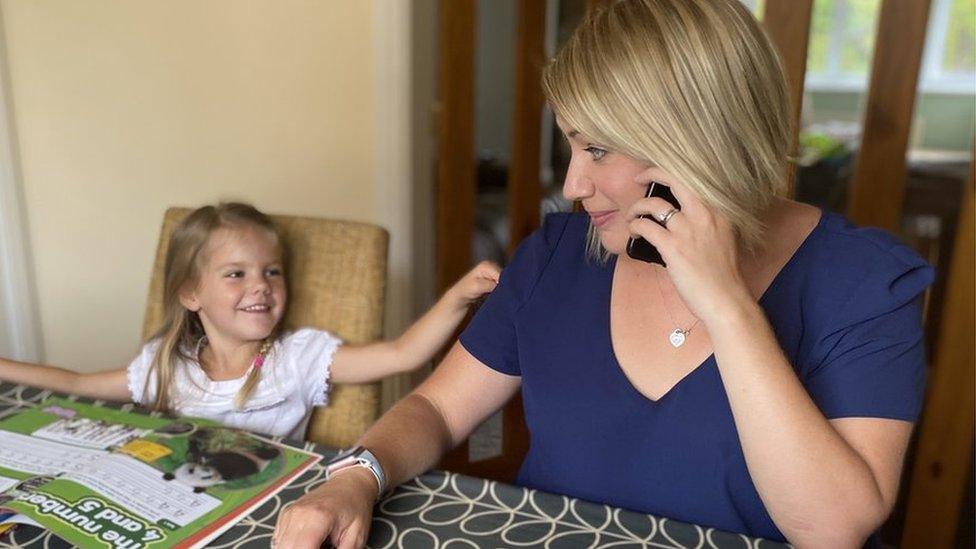
Gemma Shaw uses her kitchen table as an office and to teach her children
Gemma and her husband have also struggled to home-school their two children while they have been maintaining full-time jobs.
"A child nudging you when you're trying to do something important, like write a press release, means you're not getting any work done but you're not educating them either," she says.
They've also had to use their annual leave, taking two weeks off work separately to cover four weeks of the school summer holidays. "That's not family time that's just holding things together," she adds.
"I work after the kids have gone to bed," she says. "So from 8pm to 10pm at night. My husband and I take shifts working and looking after the children during the day, but I still need to finish all my hours. It's so stressful".

Paul feels unmotivated.
He lives in Newcastle and works in IT. He resisted working from home as long as he could.
"We were given the option to work remotely but I held on for another week until we were instructed to go home" says Paul, which is not his real name. And he says it has affected his mental health.
"I'd been on antidepressants and by March I was feeling like there was light at the end of the tunnel," he adds. "But being in lockdown makes me anxious and I get distracted by anything around me.
"The biggest thing for me is the lack of social interaction. I have some good friends at work and we go for a run in our lunch break. Not having that exercise and interaction is difficult."
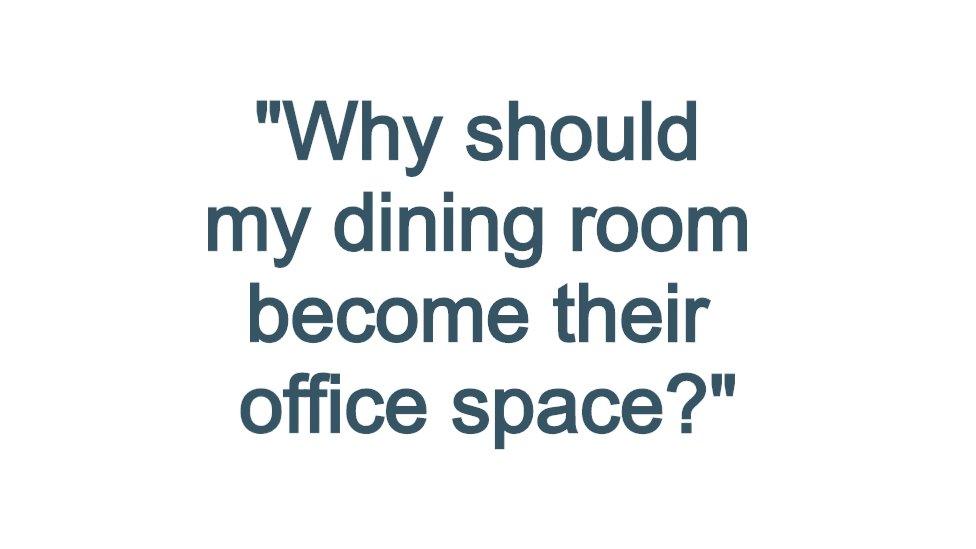
Paul says he has lacked motivation to complete his daily tasks. "I don't like my job, so staying engaged can be hard.
"Work at the moment is way down on my priority list - if I was in the office the support network around me would help make it not so bad."
And he says getting the right equipment has been difficult. "I need two monitors to do all the comparisons I need to do and I only got the second one recently."
Paul's company is now offering bookable hubs for employees to work from instead of returning to the office. But for him, like so many others, working from home could become the new normal.
And that's not something he is happy about. "Why should my dining room become their office space?"

SOCIAL DISTANCING: What are the rules now?
FACE MASKS: When should you wear one?
HOLIDAYS: Will I get a summer break?

- Published31 July 2020
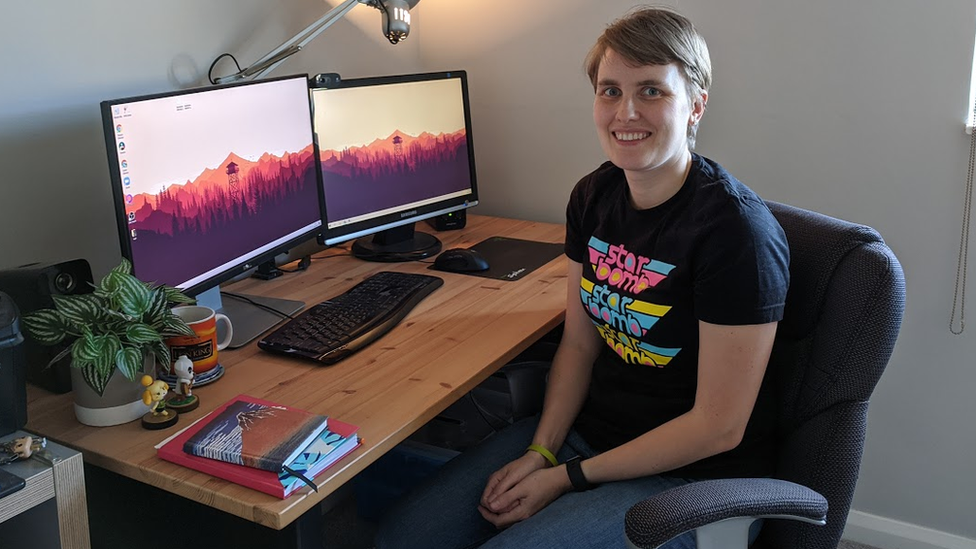
- Published31 January 2022

- Published30 September 2021
